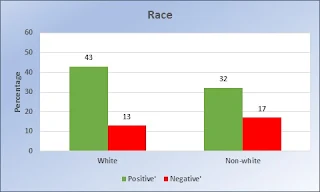 |
| Percentage who believe each profession has a high or very high standard of professional ethics. Source: Gallup Poll Social Series[PDF] |
The level of trust of the US public in the ethics of the clergy continues to decline, according to a Gallup survey published just before Christmas, 2020, based on sampling over 1-17 December, 2020. The same poll shows an enhanced level of trust in the medical and medical-related professions, doctors, nurses and pharmacists, probably due to the way they are seen to be coping with the coronavirus pandemic.
The stock of the clergy, never as high as that of nurses, doctors and pharmacists has been in steady decline since 2004, falling 17 percentage points in the intervening 16 years to 2020, probably as a result of the child abuse scandals that engulfed the Catholic Church. The evangelical alliance with Donald Trump has done them little good either; all four of their worst years have been since 2016 when they fell below 40% for the first time, never again to rise above it.
The medical professionals all appear to have benefitted from the coronavirus pandemic in terms of perceived professionalism, all three showing sharp rises during 2020.
 |
| Projected forward to 2030 Source: Gallup Poll Social Series[PDF] |
In 2004, the clergy were fourth in the professionalism ranking, clustered with, but a little behind the three medical professions. By 2020 they were still fourth, but now clustered more closely with Lawyers, Business executives, Advertising practitioners, Car salespeople and Members of Congress - professions that are traditionally regarded as having low ethical standards.
Projecting current trends ten years into the future, by 2030 clergy are on course to be on a par with Police officers, Bankers and lawyers in public perception of their ethical standards. If only very recent trends are used, then Police officers in 10 years' time should be substantially more trusted than clergy, despite the recent spate of high-profile killings of black people by white police officers.
 |
Source: Gallup Poll Social Series[PDF] |
Possibly reflecting the higher religiosity of republicans and their right-leaning tendencies, far more of them have a high or vary high confidence on the integrity of police officers (79%) and clergy (54%) than do Democrats (36% and 38% respectively). Independents rate Police officers about midway between Republicans and Democrats but have an even lower regard for the integrity of the clergy (32%) than do Democrats (38%).
It may reflect a generally relatively un-educated status of Republicans that they only rate the professional integrity of Grade-School teachers at 65% as opposed to Democrats (85%). Again, as with most other groups, Independents come about midway between Republicans and Democrats. When it comes to the three medical professionals in the categories - Nurses, Medical doctors and Pharmacits, Republicans rate all of them slightly less than do Democrats, with the biggest difference being for Medical doctors (Republicans 70%; Democrats 84%).
Possibly reflecting a perception by Republicans of the press and news media being liberal or left-leaning, the biggest difference between supporters of the two political parties is over the professional ethics of Journalists with Republicans only scoring them at 5%, against the 48% for Democrats.
 |  |  |
 |  |  |
Source: Gallup Poll Social Series: QN9E[PDF] | ||
The bad news for clergy in this survey is that they are quickly losing the trust of the younger age-groups, especially the key 18-34 year-olds who will mostly be the parents of the next generation. In this group, the clergy are given a high or vary high rating by only 24% while the same percentage in the same group rate them low or very low. This compares to 51% positive rating and a 30% negative rating in the 51+ age-group (one of only two groupings that give clergy a greater than 50% positive rating for professional integrity, the other being Republicans at 55%).
Perhaps surprising is the fact that the higher the level of educational attainment, the greater the trust in the professional integrity of the clergy.
The overall impression from this survey is that the American love affair with religion, which made America an outlier on the world stage amongst the developed, industrial economies, is waning. Americans no longer rate the clergy highly in their perception of professional standards and, although the Trump era, when evangelicals in particular threw their lot in with a deeply corrupt and flawed, narcissistic character, has maybe consolidated the influence of the clergy in the conservative-leaning, Republican supporting sections of American society, it, like the Catholic child abuse scandals, has probably served only to diminish them in the eyes of the liberal-leaning, Democrat-supporting sections.
That trend shows no signs of slackening.


No comments :
Post a Comment
Obscene, threatening or obnoxious messages, preaching, abuse and spam will be removed, as will anything by known Internet trolls and stalkers, by known sock-puppet accounts and anything not connected with the post,
A claim made without evidence can be dismissed without evidence. Remember: your opinion is not an established fact unless corroborated.